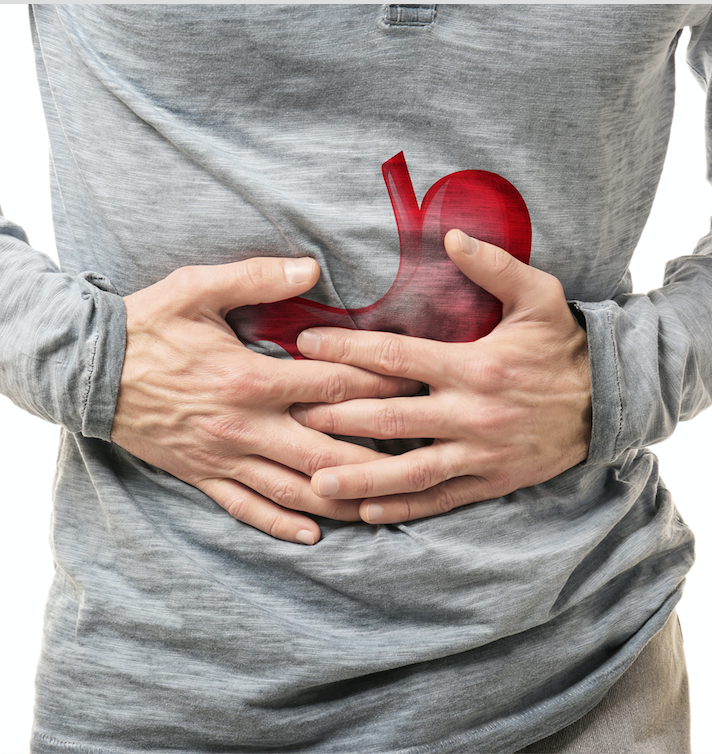
Hi Friends,
In the last few weeks, I have had quite a few people ask me about digestive issues especially IBS! And I was forced to think about this topic again and again as to why is IBS on the rise?
IBS can be highly uncomfortable and can trigger a lot of mental and physical stress. It can significantly impact a person’s quality of life and productivity. It is a chronic condition with variations in the degree of severity.
People with IBS have different types of symptoms that can include constipation, diarrhea, or alternating episodes of constipation and diarrhea.
IBS is classified according to the primary symptoms: IBS with constipation (IBS-C), IBS with diarrhea (IBS-D), IBS with both constipation and diarrhea – Mixed IBS (IBS-M).
Modern lifestyle with persistent stress, pollution, untimely eating habits, and incompatible foods are some of the reasons that are either the triggers or primary causes behind IBS symptoms.
It was surprising for me to note that IBS is not a single disease. It is actually a cluster of symptoms related to poor digestive health. In Ayurveda, IBS is called “Grahani”. It is classified as a major health disorder of the digestive system.
Here are some of the most common IBS Symptoms:
- Abdominal pain –cramps or bloating, pain in the lower half of the belly which is usually eased or partly eased after passing a bowel movement.
- Formation of excess gas in the stomach.
- Episodes of explosive Diarrhea at times.
- Constipation is sometimes alternating with painful episodes of diarrhea.
- Some people also suffer from urinary symptoms along with digestive issues.
There are many things that worsen the symptoms of IBS like certain foods, medicines, poor eating habits, and mental stress. Therefore, the individual needs to know about the triggers and accordingly make changes in diet and lifestyle to avoid them cautiously.
Here are some of the common triggers:
- Certain Foods- IBS symptoms could get exacerbated by eating or drinking specific foods or drinks. For example, dairy products, wheat products, citrus fruits, beans, cabbage, and carbonated drinks worsen the symptoms of IBS. Many people go through severe symptoms right after the meals or after the consumption of meals rich in complex carbohydrates, caffeine, spices, lactose, fatty foods, or alcoholic drinks.
- Hormonal Changes-Women are more susceptible to having IBS. Many women experience the symptoms of IBS getting worse during or around their menstrual cycle.
- Stress- We all know that stress can upset digestion! In fact, people with IBS find that their symptoms get worse or more frequent during periods of increased stress, such as during their exams.
- Use of Antibiotics – Regular use of antibiotics can also be the cause of permanent alteration of gut-microbiome, which in turn could be a major contributor towards the development of IBS.
- Microbial/ Viral Infections of the digestive system could be another cause of IBS.
- Irregular Intestinal Contractions- Layers of muscle present in the walls of the intestines contract/relax with the moving of food through the digestive tract. When the contractions are stronger and continue for a longer time than normal, it can create gas, bloating and diarrhea. On the other hand, weak intestinal contractions can reduce the mobility of food and cause constipation i.e. dry & hard stools.
- Inflammation in the intestines- If you have a weak digestion, it could lead to increased toxicity in the gut, which in turn could lead to inflammation in your intestines which leads to pain and frequent episodes of diarrhea.
According to Ayurveda, accumulation of toxins in the digestive tract along with imbalance in the Doshas are the primary causes of IBS. Toxin build up leads to inflammation of the digestive tract and disturbs the normal functioning of the digestive system.
As per Ayurveda, Vata Dosha is responsible for all movement in the body including excretion. Hence, when Vata dosha is out of balance, one becomes prone to irregular bowel movement, pain, constipation, and bloating.
Similarly, when Kapha Dosha is out of balance, there is toxic build-up or Ama formation in the body.
Additionally, Pitta imbalance leads to heat and inflammation in the body. Therefore, in the later stages of IBS all three doshas are involved in the development of symptoms.
Ayurvedic management of IBS involves the following steps:
- Detoxification of the digestive tract to clear out “Ama”.
- Igniting & balancing the digestive fire (Agni).
- Yoga and pranayama to balance Vata Dosha, promote mental wellness, and relieve stress.
- Diet, Herbs, and Lifestyle that balance Vata Dosha.
Ayurvedic Diet for IBS:
- Consume easy to digest, warm, and unctuous meals like soups, gruels, khichari.
- Choose foods that are naturally sweet, lightly sour, and salty in taste.
- Practice strict discipline towards the types of foods, the quality & quantity of food and timings of your meals.
- Regular use of Ayurvedic Herbs can help to establish the digestive fire, clear out the toxins, and relieve the symptoms of IBS.
- Here’s a list of Ayurvedic herbs that support the digestive health: Triphala, Ginger, Turmeric, Cinnamon, Aloe vera, coriander, mint, lemongrass, fennel and Licorice (not to be used in hypertension). Always check your Prakruti before using herbs on a daily basis as they have therapeutic qualities or consult with an ayurvedic practitioner.
Foods to avoid:
As the symptoms of IBS vary from one individual to another, so the allergens that trigger IBS may vary as well. It is important that you keep track and remove those foods that trigger digestive issues for you. Here is a list of foods that must be avoided if you are seeing signs of IBS
- Avoid processed foods. They contain preservatives, artificial flavors and colors that could trigger inflammation and immune response leading to IBS symptoms.
- Avoid Red peppers, onions, red wine, wheat, and cow’s milk.
- Avoid fried/ greasy foods as they lead to the production of cholecystokinin hormone that induces contraction of the gallbladder and hence making the pain or symptoms of IBS worse.
- Avoid irritants such as caffeinated drinks – coffee and tea, Soda, Alcohol, and Nicotine.
- Avoid chewing gums, mint, and tobacco products that introduce excess air into the body through the digestive tract.
- One should stop Vata promoting foods. These include heavy, gaseous, and hard to digest foods such as beans, cruciferous vegetables such as cabbage, cauliflower, Brussel sprouts, dairy products, spicy foods, alcohol, and caffeinated drinks.
Dietary Habits:
- Avoid untimely meals – One should eat at a fixed time and in a fixed quantity. Following a routine helps to bring the Vata Dosha in balance.
- Consume soft and easy to digest foods such as khichari and porridge.
- Sip warm/hot teas such as cumin tea, fennel tea, and ginger tea.
- Stop smoking.
- Hydrate with water and natural drinks such as coconut water.
- Avoid 3 large meals. Instead go for 4-5 small meals.
- Limit the intake of milk or other dairy products.
Lifestyle tips:
- Include daily exercise routine. Do not carry out strenuous physical activity, as it will aggravate Vata Dosha. Instead follow calming, relaxing, and toning activities in nature.
- Do regular yoga to strengthen abdominal muscles.
- Management of stress through relaxation techniques such as meditation, calming music, and ayurvedic massage.
- Practice mindfulness through exposure to nature, reading books, listening to music, disconnecting from the internet and social media for some time, and by spending time with loved ones.
- Avoid stressful situations and triggers at all cost!
If you need help in this area, please CONNECT with us for a personalized ayurvedic diet and lifestyle regime for your unique prakruti (mind body type) or vikruti (any current imbalance).
If you are new to Ayurveda and want to know if Ayurveda is right for you, do take our short introductory course on WHAT’S YOUR DOSHA?
Learn the basics of Ayurveda through our self-paced online course BASICS OF AYURVEDA.
Get all the knowledge to maintain a well-balanced AGNI (digestive fire) through our self-paced online on-demand course THE DIGESTION- IMMUNITY CONNECTION.
Check out OUR SELF-PACED ONLINE COURSES that include a perfect blend of Holistic Nutrition and ancient Ayurvedic wisdom!
- THE COMPLETE GUIDE TO STRESS MANAGEMENT
- TAKE CONTROL OF YOUR BLOOD SUGAR NATURALLY!
- BASICS OF HEALTHY EATING
- THE DIGESTION- IMMUNITY CONNECTION
- MANAGE BACK PAIN USING DIET & LIFESTYLE
- WHAT’S YOUR DOSHA?
- BASICS OF AYURVEDA
- THE COMPLETE GUIDE TO AN EASY MENOPAUSE!
CONNECT WITH US & BE THE FIRST ONE TO RECEIVE DISCOUNT COUPONS FOR ANY OF OUR SERVICES!
NAMASTE,

Preeti Syal
M.Sc., R.H.N., Certified Ayurvedic Lifestyle Consultant
The content provided in my blogs is for knowledge-sharing purposes only and is not intended to be a substitute for professional medical advice, diagnosis or treatment.


